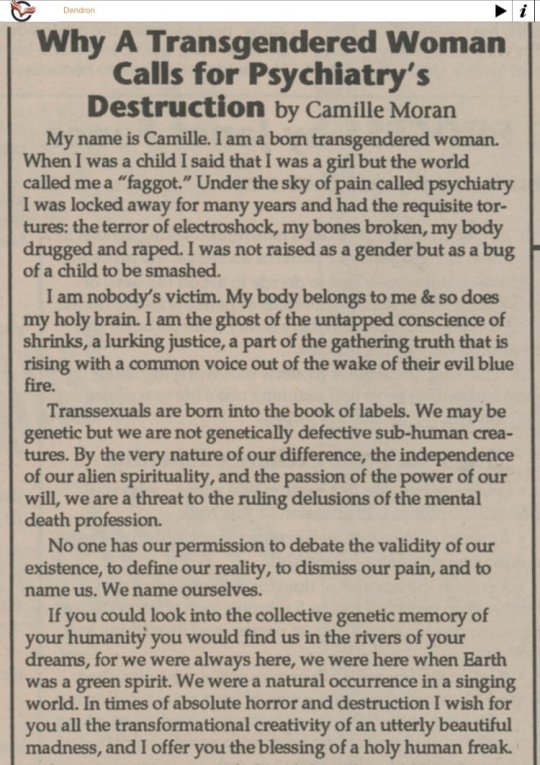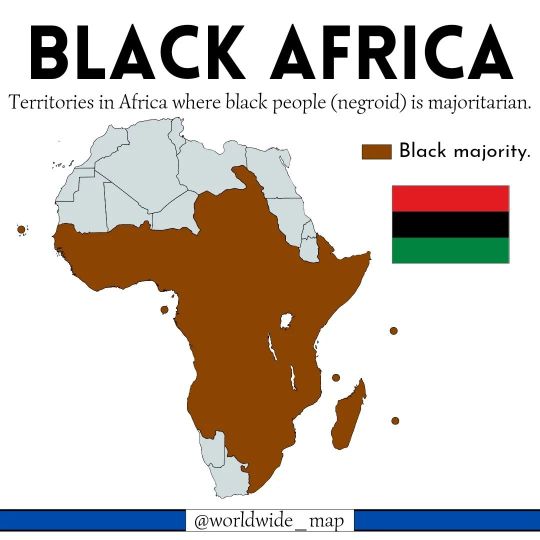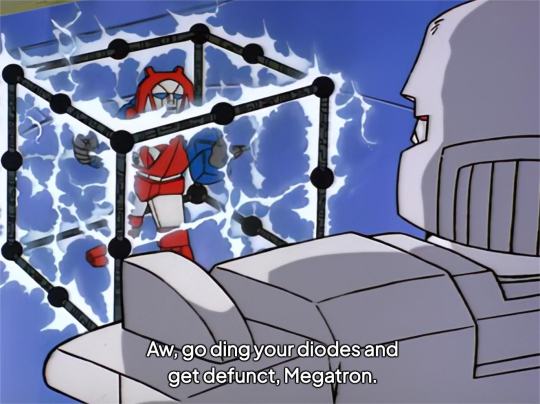#majoritarianism
Explore tagged Tumblr posts
Text
When you're only 3% of the population, you rely on the other 97% to do the right thing," she says. It comes down to human compassion [but] there's still a blame the victim mentality - as though what happens to us is what we deserve. Maybe future generations will change that narrative.
Raylene Nixon, mother of Steven Nixon-McKellar
#Raylene Nixon#Steven Nixon-McKellar#majoritarianism#democracy#compassion#victim blaming#racism#Australia#Aboriginal and Torres Strait Islander people
3 notes
·
View notes
Text
Despite the challenges posed by GST rate inflation in pump, grinder, and OEM industries, as well as the significant setbacks faced by the textile industry due to central government policies over the past decade, Coimbatore has remained resilient.
This resilience can be attributed to the robust infrastructure developed by successive Dravidian governments, the presence of reputable educational institutions, the establishment of Tidel parks, favorable climatic conditions, and the enduring spirit of its people.
To suggest that Coimbatore's development hinges solely on the intervention of a BJP is not only inaccurate but also disrespectful to the contributions of Dravidian leaders spanning generations.
From Diwan Bahadur Rathnasabapathy to present-day governance, their efforts have played a pivotal role in shaping the city's progress.
In the aftermath of the bomb blasts in Coimbatore, many individuals who once sought livelihoods in the city departed, leaving behind a community determined to restore normalcy.
However, among those who returned, a faction emerged— individuals who, instead of contributing positively, sought to assert dominance over local businesses. These individuals, often identified by their support for particular religious affiliations, engaged in practices that suppressed native enterprises.
Absolutely, democracy empowers us to make informed choices based on the principles of justice, equality, and secularism. It's crucial to assess candidates based on their commitment to these values rather than succumbing to divisive narratives or majoritarian dominance. Each vote is an opportunity to uphold the ideals of a pluralistic society and ensure that the voice of every citizen is heard and respected.
1 note
·
View note
Text
there are only 2 kinds of queer headcanons that i hate:
"we didn't have (enough?) skinny white men to ship together so we created them" (think the onceler and himself or phil coulson and hawkeye)
"the only way for us to recuperate this (skinny white) character we hate/don't relate to (usually for the way his [always his] cis/het-ness colors how we understand his bad behavior) is to queer them and change literally nothing else!"
#medium post?#i swear this thought came to me from nowhere#queerness being used to contain (control?) abject qualities of majoritarian society just always gives me pause
2 notes
·
View notes
Link
How did the people in these mobs — made up mostly of white men in the American accounts I’ve read — rev themselves up to peak barbarity? At what point did their humanity go dormant and bloodlust consume their beings?
3 notes
·
View notes
Text
In times of absolute horror and destruction I wish for you all the transformational creativity of an utterly beautiful madness, and I offer you the blessing of a holy human freak.

she was such a queen for this
#inspo#help#listen i think a lot of rhetoric esp in cis white majoritarian spaces focuses too much on the tragedy of being ‘’other’’’#how much harder we have it etc#i will never forget one of my friends (who made the difficult decision of shaving his dreads for oci)#said during our race n the law class which was mostly abt enumerating genocides of so many people#‘’why would i ever want to be white?’’#there’s such a revolutionary strength and power of personhood to turn around and say#to turn the mirror onto the oppressor and tell them i pity you#actually i reject everything you’ve put on me and here I am actually#anyway#she really went off here#f slur#camille moran#txtit
17K notes
·
View notes
Quote
There is one issue now, and only one: keeping alive the vestiges of American democracy, with its commitment to meaningful checks and balances and to individual rights as well as majoritarian rule. American democracy has never been perfect, but it’s all we’ve got. When we have it, we can disagree peacefully and hope to remedy policy mistakes through discussion, legal action, and the ballot box. If we lose it, we’re done. So, whether you’re a fan of Bernie Sanders and the Squad or an admirer of Liz Cheney, we all need to stand together against Trump. To have any hope of achieving the kind of disciplined unity that will be essential to countering Trump, we also need a rhetoric and politics of inclusion. The left needs to ease up on cancel culture, rigid purity tests, and petty identity politics. We can’t give up on one another, and we can’t waste time wallowing in self-pity, or make plans to emigrate to Canada. This is our country. Around the world, millions of brave people have pushed back against far more abusive and frightening leaders than Donald Trump. If they can stand up against truly horrific regimes in their own countries, Americans can handle Trump.
I Helped Run “War Games” on Trump’s Plans. They Were Not Reassuring.
520 notes
·
View notes
Text
Where does this curious Hindutva-Zionist solidarity spring from? One origin is from the earliest Hindu nationalists who modelled their Hindu state on Zionism. Hindutva’s founder, Vinayak Damodar Savarkar, supported majoritarian nationalism and the rooting out of all disintegrating forces. These included Muslims who supported electoral quotas for their community and left-wing internationalists. As a result, he even condoned the Nazis’ antisemitic legislation in two speeches in 1938 because, as he saw it: “a nation is formed by a majority living therein”. Yet Savarkar was not antisemitic himself. He often spoke favourably of the tiny Jewish-Indian minority because he considered it too insignificant to threaten Hindu cohesion. In fact, Savarkar praised Zionism as the perfection of ethno-nationalist thinking. The way Zionism seamlessly blended ethnic attachment to a motherland and religious attachment to a holy land was precisely what Savarkar wanted for the Hindus. This double attachment was far more powerful to his mind than the European model of “blood and soil” nationalism without sacred space. Today, Hindu nationalists perpetuate this legacy and still look to Zionism as a uniquely attractive political ideology. To Hindu nationalists, some Zionists were engaged in a project to reclaim their holy land from a Muslim population whose religious roots in the region were not as ancient as their own.
[...]
In 2018, Israel passed a law that rebranded the country as “the nation-state of the Jewish people” and delegitimised its non-Jewish citizens. Similarly, India’s controversial Citizenship Amendment Act in 2019 eased paths to citizenship for immigrants from several religious groups, but not Muslims. Coupled with rhetoric associating millions of Indian Muslims with illegal immigration, human rights groups argue that this law could be used to strip many Muslims of their Indian citizenship. Hindu nationalists have also stoked a culture war to consolidate “Hindu civilisation” and sweep away symbols of Islam. This is very much in keeping with the wish of Israel’s far right to rebuild Solomon’s Temple on the site of the holy Temple Mount in Jerusalem, where al-Aqsa mosque compound currently sits. In 1969, a Zionist extremist burned the south wing of al-Aqsa. And in 1980, the fundamentalist group Jewish Underground plotted to blow up the Dome of the Rock, an Islamic shrine at the centre of the compound. A similar project of demolishing mosques and building temples in their place was suggested by Savarkar and Golwalkar. Hindu nationalist organisations focused their attention on Babri Masjid mosque in Ayodha, since this was the mythical birthplace of the Hindu god, Ram.
326 notes
·
View notes
Text
Western food imperialism has not spread veganism to non-Western countries or to Indigenous domestic populations; rather, it has imposed animal agriculture, animal foods, and factory farming on cultures whose diets have traditionally been plant-based, replacing relational hunting and sacred eating practices with the deaded life of animal agriculture. As Deckha writes, arguments about veganism as food imperialism discount the enormous amounts of plant and land resources that are required to sustain current Western levels of flesh consumption and ignore the richness of non-Western flesh-free food traditions and ideologies of nonviolence toward all living beings. Indeed, these accusations align with the centuries-old majoritarian habit in Western cultures of deriding vegetarianism and, as it has come more into popular consciousness, veganism. What is different (and remarkable) today is that flesh-free diets are impugned for purported imperialist aspirations when they were denounced in the time of British empire-building as markers of anti-imperial and countercultural allegiance. Further… arguments that invoke multiculturalist discourse to disparage vegetarianism/veganism and otherwise sanction cruel animal practices have themselves “gone imperial” in their disregard for animal otherness, vulnerability, and marginalization. Along similar lines, Richard Twine insists that we must “set debates around vegan universalism within the larger context of the present-day universalization of Western food practices which include, of course, increasing global trajectories of meat and dairy consumption in, for example, Asia and Latin America,” and hence “contemporary accusations of food colonialism and imposition must… be directed [not at vegan activists but] at the unsustainable Westernization of high rates of meat and dairy consumption in new parts of the world.”
-Colonialism and animality: anti-colonial perspectives in critical animal studies (2020)
150 notes
·
View notes
Text
Whatever the historical social contradictions in Manipur between the Kukis and Meiteis, the horror unfolding at present has been exacerbated by the present governments at the state and the Centre. They have legitimised majoritarianism in Manipur and unleashed ethnic fear. Every institution, from police to NHRC, has become part of the problem, not the solution. It is astonishing that a government that prides itself on "national security" actively creates a national security threat in its own country.
Pratap Bhanu Mehta, ‘Our morality after Manipur, Indian Express
1 note
·
View note
Photo

Territories in Africa where black people (negroid) is majoritarian.
by worldwide_map
131 notes
·
View notes
Text

Do not even try coming into my replies with this garbage. I am not going to condemn Hamas. I will grieve for their victims and the lives lost and suffering, and I will never commend or condone anybody's violence. But to see it as anything but the reaction to an unrelenting torment inflicted on their own people tenfold by Israel is utterly reprehensible. There is no monster more evil than the hands that created it.
Condemning Hamas is to deflect from holding Israel accountable and contributing to the alienation and oppression of the Palestinian people. And I will never, ever support "wiping out" Hamas, full of the sons and daughters of murdered, raped and pillaged families, the way I hope the IDF and Israeli government gets eviscerated. I have no sympathy for colonists. The Nuremberg Principle applies.
It's amazing how the word "nuance" has been turned into a cheap coin for colonialism.
Nuance: "It makes me uncomfortable to take a moral stand against oppression and colonization so I'm going to pretend it's too fucking complicated to listen to the people who have been systemically expelled, displaced and ethnically cleansed for the last seventy years."
Someone said in a tag that "white ignorance is called objectivity and white knowledge expertise" and that is exactly what's going on here.
#i wish i had had the knowledge and capability to have said this on behalf of the LTTE during the last genocide of the civil war#the devastation was so absolute that Tamils called it The Apocalypse#but i just have the luxury of my majoritarian guilt while they have nothing#not even a stick of incense on the ground for their murdered children#not a memorial for the thousands gunned down and shelled in no man's land#no forgiveness for having believed the army and persuaded their children to lay down their arms and surrender#only for the military to open fire on them while holding white flags and dump their bodies in mass graves#how am i to ever hate them dear god#so no I will never condemn them#we were always the architects of our own destruction#free palestine#israel is a terrorist state#death to israel#knee of huss
151 notes
·
View notes
Text
The lobotomy of Gears, Megatron's most heinous crime and the tyranny of the majority: an unnecessary socio-historical perspective of a Transformers episode
As I was watching Changing Gears, the 7th episode of the second season of The Transformers I was not expecting to be sucked into a black hole that took me to 20th century psychiatry, democracy criticism and minorities rights. And well, I just needed to put this out there, if nothing else to show how media can affect us in different ways, this was my personal Transformers journey of the day.
The episode revolves around Megatron's plan to remove the personality modulator of the Autobot Gears and use it in his evil sun draining machine, the details are not important, what matters is that Gears personality is fundamentally changed without the engine stolen, and his uptight and irritated personality, turned from this:


To that:

I don't think it's a long shot to understand this change of behavior as something very similar to the effects of the lobotomy treatment that was popular in 20th century psychiatry. This type of brain surgery is defined by the severance of the connections between the frontal lobe and the rest of the brain. "Often, the procedure made people quiet and docile, which they interpreted as a sign of success" - according to MNT. Which is exactly what happens to Gears without his personality modulator.


This is a Sylvia Plath dialogue with a lobotomized patient from her 1950s novel The Bell Jar. And Gears "perpetual marble calm". This excerpt came to my mind because that book along with a couple of movies made me (almost irrationally) scared of these kind of procedures when I was younger. By being underage (back then), depressed and gay I thought I was a perfect victim for invasive, radical ways of making me "normal". Times changed of course, but back then disabled people, the LGBTQ+, women and others with a "strange behavior" were the main targets for lobotomy.
When Ironhide sees Gears transformation from irritable runt to docile servant he is appalled, disgusted...


LOL
How dare Megatron turn Gears into that? Removing the agency and liberty of an individual while keeping them alive, Megatron was way out of line, right? However... by the end of the whole conflict, a complex moral twist takes place among the good guys, the Autobots, when Trailbreaker admits:


Here, Trailbreaker position is reminiscent of that of husbands who would approve of the docile behavior of their wives after the lobotomy surgery. Particularly in a time where women were expected to be calm, cooperative and attentive to domestic affairs. Also I hate the fact that Bumblebee calls that calm behavior "photovoltaic pussycat" because that sounds cool, but in that case it's terrible, stop trying to make debilitating procedures cool Bumblebee! This interaction quickly took me to some dark places, a place where your loved ones can choose how you should behave, a place where you have no choice but to conform to a social expectation, making others lives easier while turning you into a limited being. Maybe not the place where the writers of this kid's tv show wanted to take their audience, I'm aware, but regardless, that's where I ended up, for a while.
They vote and decide to keep Gears without his personality modulator, and Prime agrees:

With this sentence Optimus perfectly synthesizes the concept of majoritarianism in the way of perpetrating the tyranny of the majority. "If the majority rules, what is to stop it from expropriating the minority, or from tyrannizing it in other ways by enforcing the majority's religion, language, or culture on the minority?" (Oxford Dictionary). In that case, Gears had his rights to keep his behavior and personality removed from him by a democratic rule. That reminds us that democracy as a political system is not without its flaws. If the majority agrees on it, does that make it immediately a right or good decision?
Luckily Gears interferes, with a threat that sounds both violent and vague at the same time, a nice touch of writing for a kid's show:


Never change Gears, nothing wrong with a little threat of violence to guarantee your rights to be your own person.
After his threat the Autobots listen to Gears, respect his wishes and Prime just gives his personality modulator back, after that they all laugh!

And honestly... I think they're happier with Gears just the way he always were, grumpy and irritated, but his true self, look at their smiling faces!
At the end of the day this episode's moral is probably: Hey kids, if they're not evil, accept your loved ones for who they are. Let's keep lobotomy procedures in the past and learn to respect our differences based on our deeply flawed history. At least, that's my, admittedly, very specific take on it...
I know this episode took me places and reminded me of old fears and thoughts I didn't have for a while, but it felt good to organize and share these ideas. Thanks for reading it.
#this is not a review#little essay#it's not really my blog without a unnecessary deep dive into the media i'm into every once in a while#the transformers#sylvia plath#the bell jar#long ass post#cw mental illness#cw lobotomy#tyranny of the majority#maccadam#transformes g1#bumblebee#ironhide#megatron#optimus prime#trailbreaker#gears#text#watching log
17 notes
·
View notes
Note
Hindutvawadis don't like monkey man reva :(
So sad to starve oneself from a good movie
😔
That's because Dev Patel is actually a westernized Indian who knows nothing about the motherland he's literally British he has NO ❌️ right to speak about majoritarianism and minority rights when he's from the UK did I mention he's westernized
62 notes
·
View notes
Text
Excerpted with permission from BREAKING WORLDS: Religion, Law and Citizenship in Majoritarian India; The Story of Assam, a report by the Political Conflict, Gender and People’s Rights Initiative at the Center for Race and Gender at UC Berkeley.
The publication of the draft NRC in Assam in 2018 revealed the exclusion of more than four million persons from the survey rolls. Reportedly, some people were excluded due to spelling errors in their names or inconsistent names in documents. After the draft list was made public, excluded individuals were permitted to submit further documentation proving their citizenship. While a majority were not of Hindu descent, reportedly between one and 1.5 million were Hindus. The exclusion of a large number of Hindus from the 2018 NRC list is presumed to be the foremost reason that changes were made to the citizenship law, and that the Citizenship (Amendment) Act of 2019 was enacted, whereby, in effect, only Muslims would be excluded from citizenship.
The (ostensibly “final”) update to the Assam NRC was undertaken on August 31, 2019. Approximately 1.9 million persons (numbering 1,906,657) were excluded from the 2019 published list, and may potentially lose their citizenship, and face expulsion, exile, and statelessness.
[...]
The Foreigners Tribunal of Assam remains the state mechanism for appeal for persons excluded from the NRC. Individuals may petition the Foreigners Tribunals with requisite documentation validating their citizenship. An appellant is deemed to be either “foreigner” or “citizen” as per the ruling of the tribunal. The process is hard, complex, and arbitrarily and routinely discriminatory. An analysis of 787 Guwahati High Court orders and judgments published by The Wire found that cases before the tribunals took about 3.3 years on average
[...]
September 2019, a Muslim family with land documents dating back to 1927 found that all members of their family were not on the NRC due to: “an objection filed [apparently anonymously] by someone against their inclusion in the final draft.” It is unclear who may file bad-faith objections or how they may be held accountable. Reportedly, approximately 250,000 such objections have been made, mostly anonymously.
[...]
Once declared a “foreigner,” an individual may be held in detention. Immigration detention centers are often locally referred to as “concentration camps.” Detention serves to criminalize and confine those deemed “illegal foreigners.” Without established limits or protocols for ethical resolution of the matter, detentions can be prolonged or indefinite unless deportation ensues. Currently, India operates thirteen detention centers, and others are being constructed to assumedly hold “undocumented” individuals.
77 notes
·
View notes
Text
I'm also frequently reminded that so much of the country has never had to live in a majority conservative area or outside of a moderately sized city in that they think republicans are an entirely peripheral breed of human when we think about how to build coalitions and/or how conspiratorial thinking infects our communities because they are an other that is annoying at family gatherings not the school board forcing your favorite German teacher to leave your school because she's an open democrat. They also just have no conception for how entirely radicalized Christianity has been toward fash adjacent republicanism because their churches have gay pride flags & they don't have to interact with people who listen to conservative radio pundits in earnest
in my abolition and carceral politics class we read this incredibly interesting piece by a prison psychiatrist in the 1950s calling for abolition on the basis that prison makes "bad" people worse, and people kept talking about how this was radical back then, and I have to say it's still radical now. The idea that despite your wish for vengeance or suffering on some disposable members of society, it doesn't work anyway. It's not perfect politics, and isn't grounded in the value on human life and redemption and restorative justice in the same way that a lot of modern abolitionist work rightfully is, but I still think that 95% of people (in the U.S.) view prisons as necessary so idk maybe it's a republican's or capitalist's abolitionism but it's still abolitionism. I was honestly just shocked by how direct the author was
#there's nothing wrong with fighting liberalism from your own experiences but theres this very lage disconnect over#idk how to reconcile the reality lf majoritarian poltical beliefs with that from a lot of people i feel it's one of the biggest issues with#domestic political consciousness that baby leftists on campuses dont care to entertain
57 notes
·
View notes
Note
it’s rare to find a sinhalese person (online atleast) who is supportive of tamil self-determination. genuine question: among leftist circles in sri lanka, how common is such a stance?
I don't know whether I'm a reliable source to answer this question because I'm very jaded about this in general. A couple of days ago, someone on the Sri Lanka Reddit started up discourse about Maitreyi Ramakrishnan's choice to reject identifying with the country that tried to genocide her people, which I'm still chewing wire about. I'm a very isolated person with a very small social circle of like-minded leftist friends. They're mostly not SinBud and anti SinBud nonsense, but none of them are Tamil and I'm the one who really convinced them about Eelam I think. The people I learned from, who are out there doing the work of building inter-ethnic dialogue and overturning Sinhalese propaganda, might have a more hopeful view.
Thing is, there's no one "leftist" faction here because "left" doesn't mean the same thing as it does in the West. The Rajapaksas' party SLPP is socialist, a legacy of the SLFP that they branched off from, that was the party aligned with the USSR. They and their voters and their saffron terror acolytes (Buddhist priesthood) are all for public infrastructure they can rob blind and central government they can use to crush minorities, and build on the nationalist fervour of genocidal Sinhalese Buddhism that's served both major parties since independence.
There's quasi-communists, descendants of the ethnonationalist Marxist JVP that rose in opposition to the class corruption of ethnonationalist USSR-aligned socialist SLFP and enthonationalist US-aligned neoliberal UNP. The current JVP party itself is no longer communist; their coalition the NPP are mostly just very pro-union social democrats, and they've since distanced themselves from their ethnic myopia, possibly due to suffering much of the same state terrorism as minorities via militarisation and policies like the draconian Prevention of Terrorism Act (PTA). They're the most vocal about the abolition of the executive presidency, the removal of all martial law mechanisms and the PTA, defunding of military and police, and restructuring and executing the long-mismanaged socialist infrastructure. These are usually the working class and university students, but their base has been growing in other demographics too, since we "held our noses and voted" for the Yahapalana government in 2015 and it ended up fucking us over. But despite their sympathy with the suffering of Tamils and Muslims and favouring the devolution of power, most still cling to the idea that Sinhalese majoritarianism is a fair result of democracy.
The kind of pro-LGBT, anti-racist, feminist liberals that would pass muster with the western left otoh, are a minority of urban, English-speaking middle class. The younger of this crowd is increasingly favouring the aforementioned NPP (that is rapidly marrying the economic left with the social consciousness led by western dialogues that otherwise go against their traditional rural working class base), but that is very new and hampered by decades of Red Scare propaganda. The minority communities and the urban liberals traditionally vote for the current neoliberal party, that has distanced itself from their virulent nationalism over the last thirty years and basically modelled itself after the US Democrats (diet right-wing as opposed to nuclear right-wing) Their idea of reducing corruption and increasing efficiency is privatizing everything, makes the right pro-feminist and pro-LGBT noises, and coasts on the minority votes on the promise of never actively feeding ethnosupremacy, even if they won't do anything about it either. The Sinhalese affiliated with this party are deeply uncomfortable with if not entirely resistant to the idea that the North and East are Tamil lands colonized by the Sinhalese. Just like the quasi-communists, urban liberals are aware of the corruption and complicity of the Buddhist priesthood in ethnofascism and are prepared to do exactly as much nothing about it.
What I'm trying to say is that Sinhalese Buddhist ethnosupremacy is baked in to the Sri Lankan political fabric. "Left" means jack shit when it comes to whether Tamils have rights, in much the same way that the western left agrees on everything except Palestine. It's a political no man's land everyone tries not to look at.
The fundamental problem is that Sinhalese people who know enough about 1958, 1983, or the full scope of genocide perpetrated against Tamils during the last push of the war, let alone all 26 years of it, are very much in the minority. It takes a particular education to understand that "Sri Lanka" is a post-colonial invention that took over from "Ceylon", which was nothing but a construct for the ease of British administration. As far as I know, this education is confined to activist organizations and whoever followed my sociology program. So my kind of anarchist leftism that calls the war a Tamil genocide with their whole chest, calls the priesthood saffron terrorists, and recognises Eelam, is vanishingly small, afaik.
To be honest, I never really questioned the propaganda and narrative we've been spoon fed myself until I went to Canada when I was 23 to complete my anthro degree (became disabled and dropped out after). One thing that struck me was how racist the Sinhalese diaspora was. I was raised SinBud, my school didn't admit any non-Sinhalese, half my uncles were in the military, but these people that had left the country decades ago still hated Tamils and Muslims in a way that nobody else I knew did. I wondered whether this was what it had been like when it had all started; whether this hatred that seemed to have been preserved in amber was a true taste of what had ignited Black July. Suddenly the attitude of the Tamil diaspora towards the Sri Lankan government and Sinhalese people didn't seem so unreasonable.
Then, later in the same uni term, I went to an art exhibition of a white artist who travelled the world collecting information about their genocides and made art about them, and found a painting depicting Sri Lankan Tamils in 2008. Promptly had a meltdown. Went to the lady and told her tearfully that it was all propaganda, we didn't really hate Tamils, not even my uncles in the army hated Tamils, it was a war, the LTTE had terrorized us for my whole lifetime. Bless the woman, she didn't fight me, just let me cry at her and patted my hand and pretended to take me seriously. This made it easier for me to really think about what I knew once I'd stopped wailing and stamping. It prompted a years-long self-interrogation and fact finding that made me unearth how much brainwashing had been done to us by everyone, from our families to our school textbooks to news media. It's like the air we breathed was propaganda. And I still didn't know a fraction of what life had been like for Tamils (or Muslims) and the scope of atrocities perpetrated by the Sinhalese until I began my Society and Culture degree at the Open University when I was 30. The first year textbooks were only broadstrokes facts, but at last I found out about Gnananth Obeysekera, Prageeth Jeganathan, Stanley Thambaiya, Malithi DeAlwis. Their work on nation-making, ethnicity, historical revisionism, genocide and ethnic conflict and state terrorism...everything I should have been taught as a child. The chapters on the rapes and murders and shelling and war crimes and IDP camps were..indescribable. That was what properly radicalised me about Tamil self-sovereignty, because there's clearly no possible way the Tamil people will ever be safe and safeguarded under a Sinhalese majoritarian government.
I had to drop out of that programme too because of my health. But during the mass protests against the government in 2022, I learned even more about Tamil indigeneity, the extent of JR Jayawardena's crimes, and the persecution of Marxists and victims of the '71 and '89 insurrections. So much of the protests and their encampments were directed and galvanized by social media, that organised online and in-person lectures, teach-outs, and live discussions that anyone and everyone could attend right alongside the protests. I've never seen that kind of truly democratized, free, egalitarian civic education and discourse before. That was the very first time I saw academics, survivors, refugees and human rights activists being given a respectful platform, the masses hearing firsthand accounts from people of the North and East and witnesses of Black July. April to July 2022 was a truly golden bubble of time where I saw people finally start listening, believing, and challenging all their convictions. It was the closest we ever came to realising the hope that things could be different; that we could, as a society, understand how Sinhalese ethnosupremacy had been the black rot killing this country from the first, stop being racist Sinhala-first cunts and actually hold any of these murderers accountable.
Teach us to hope, I guess.
But I suppose it's no small thing that I learned about the Tamil resistance and struggle and taught all my friends about it. I'm sure they're informing their own circles in small ways too. These tendrils are hard to see, but they exist and grow. Especially with the fall of the Rajapaksas and their Bhaiyya contingent, more people can see ethnosupremacy for the grift that it is, and the younger generations are less defensive, more willing to listen and eager for justice and change. So I guess the answer is: not very common, but less uncommon than it used to be.
#sorry if this is long winded. I hyperfixated#sri lanka#sri lanka politics#tamil sovereignity#eelam#tamil genocide#asks#anon#knee of huss
76 notes
·
View notes